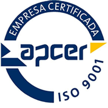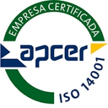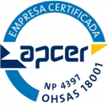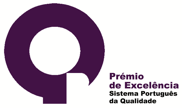Pharmacovigilance
Pharmacovigilance Hotline: 800 20 28 38
Medicinal products can only be marketed after their efficacy, safety, and quality, together with a favourable relationship between the expected benefits and risks, have been confirmed.
Apart from the therapeutic benefits that a medicine can provide, it can also cause undesirable effects. Therefore, monitoring the safety of marketed medicines is the responsibility of the pharmaceutical industry through the practice of pharmacovigilance.
According to the World Health Organization, pharmacovigilance is the science and activities related to the detection, assessment, understanding, and prevention of adverse reactions or any other problem related to medicines.
The activities developed in the context of pharmacovigilance are for the collection, management, analysis, and assessment of drug safety information. According to the benefit-risk ratio of the drug, decisions are taken such as safety alerts, resizing of packages, restrictions on the use of the drug, withdrawal of the drug from the market, etc.
The aim of pharmacovigilance is to ensure the protection of public health and to make medicine use safer and more efficient. It is a responsibility shared by the various stakeholders:
- INFARMED (National Authority of Medicines and Health Products of Portugal), I.P./National and International Regulatory Authorities;
- Healthcare Professionals (doctors, pharmacists, nurses);
- Pharmaceutical Industry;
- Patients/Users.
Monitoring does not end with clinical trials
Clinical trials conducted during the development phase of a medicinal product provide important information on the safety of medicinal products, in particular on their most common undesirable effects and interactions with other products administered at the same time.
However, this information is limited due to the nature of clinical trials (participation of a restricted number of patients, limited duration of the trial, fixed dosages administered, and very strict requirements as to the use of the medicinal product). These tests do not always reflect the normal conditions of use of a medicinal product.
Therefore, it is essential that the safety of a certain medicine is monitored during its marketing phase, not only for the effective and early detection of adverse reactions, but also to complete and improve safety information pertaining to that medicine.
A harmful and unintended reaction to a medication and where there is a possible causal link between the adverse occurrence and the use of the medication.
Adverse reactions are considered to be all situations resulting from the use of the medicine according to the Summary of Product Characteristics (SmPC) or the Patient Information Leaflet (PIL), as well as those occurring from a use that is not described in the SmPC or PIL, such as those resulting from medication errors, misuse or abuse, or resulting from occupational exposure (arising from professional activity).
Note: A 'medication error' is defined as any unintentional error that occurs in the prescription, dispensing, or administration of a medicine. The intentional excessive use of a medicine, whether persistent or sporadic, in combination with harmful physical or psychological consequences is considered to be “medicine abuse”. Misuse of a medicinal product, i.e. an inappropriate and intentional use of a medicinal product outside the conditions foreseen in the SmPC or PIL is defined as “misuse”.
When reporting an adverse reaction it is also important to distinguish between two easily confused concepts: intensity and seriousness.
Intensity or severity is based on the intensity of the adverse reaction and is classified as mild, moderate, or severe.
Seriousness is related to the evolution/outcome of the adverse reaction and is defined by the criteria described for a serious adverse reaction.
Any adverse reaction that:
- Leads to death;
- Puts a patient's life in danger;
- Requires or prolongs hospitalisation;
- Leads to persistent or significant disability;
- Involves a congenital defect;
- Is medically important (if deemed so by the clinician).
Anyone can report an adverse reaction, regardless of whether they are a healthcare professional or not.
All suspected adverse reactions, whether serious or otherwise, regardless of whether they are described in the Summary of Product Characteristics/Patient Information Leaflet should be reported.
1. Users
If a user suspects that they are experiencing an adverse reaction to a Tecnimede Group product, they should report it to their doctor, pharmacist, or nurse as soon as possible. You can also inform:
- The Tecnimede Group, using the form at the bottom of this page.
- INFARMED (National Authority of Medicines and Health Products of Portugal), I.P.
2. Healthcare professionals
Whenever a user reports a suspected adverse reaction to a TECNIMEDE GROUP product, this must be reported:
- To the Tecnimede Group, using the form at the bottom of this page.
- To INFARMED (National Authority of Medicines and Health Products of Portugal), I.P.
For an adverse reaction report to be considered valid, at the very least, the following elements must be identified:
- Patient Identification (it is enough to use initials when specifying name, age, and gender),
- Identification of the Person Making the Notification,
- Description of the Adverse Reaction,
- Identification of the Suspected Medication.
The confidentiality of the information collected is guaranteed for every notification.
While these are the minimum requirements for us to confirm the notification, any additional information you may be able to provide us (for example, other medication, medical history, allergies, previous adverse reactions, method of administration of the medication, etc.) will contribute to a better evaluation of the case and consequently a better assessment of the benefit-risk of the medication.
The Pharmacovigilance Area of the Tecnimede Group is part of the Medical Department and it can be contacted using the following contact information:
Address: Zona Industrial da Abrunheira, Rua da Tapada Grande, no. 2, 2710-089 Abrunheira, Sintra – Portugal
Fax: +351 210 414 105
Tel.: +351 210 414 119
Email: dmed.fv@tecnimede.pt
Pharmacovigilance Hotline: 800 20 28 38
The Tecnimede Group only has a Pharmacovigilance Hotline in Portugal, which is free of charge and available 24 hours a day.
If you are aware of any suspected adverse reactions/undesirable effects associated with any one of the Tecnimede Group's medicines/supplements/cosmetic products, please contact us using the contact details above.
Notifying the Tecnimede Group is intended to:
- Collect and evaluate all suspected adverse reactions and report them to the regulatory authorities in accordance with the applicable legislation.
- Contribute to the proper monitoring of safety data concerning medicines/supplements/cosmetic products produced by the Tecnimede Group and the continuous evaluation of their risks and benefits.
- Contribute to the improvement of the pharmacovigilance system both in Portugal and across Europe.
- Develop a proactive approach with regards to pharmacovigilance.
- Improve the information available to healthcare professionals (doctors, pharmacists, nurses) and consumers, and contribute to the safe and responsible prescribing of medicines.
- Improve the available information on supplements and cosmetic products.
Cosmetovigilance is the “system which enables the monitoring of undesirable effects resulting from the use of cosmetic products”.
A cosmetic product is “any substance or preparation intended to be placed in contact with the various superficial parts of the human body, namely the epidermis, hair and hair systems, nails, lips, external genital organs, or with the teeth and oral mucous membranes with the purpose of, either exclusively or for the most part, cleaning or perfuming them, changing their appearance, protecting or keeping them in good condition, or correcting body odours” (as defined by Decree-Law no. 189/2008, of 24 September).
Cosmetic products must not cause damage to human health when applied under normal or reasonably foreseeable conditions of use. However, even if a cosmetic is used in accordance with the requirements, it may still cause undesirable effects.
Cosmetic products fall under the jurisdiction of INFARMED (National Authority of Medicines and Health Products of Portugal), I.P.
Whenever a user or healthcare professional suspects/knows of undesirable effects related to cosmetic products manufactured by the Tecnimede Group, they must be reported:
- To the Tecnimede Group, using the form at the bottom of this page
- To INFARMED (National Authority of Medicines and Health Products of Portugal), I.P.
Dietary supplements “are food products that are intended to complement and/or supplement the normal diet and are concentrated sources of certain nutrients or other substances with a nutritional or physiological effect, either individually or in combination, marketed in dose form and intended to be taken in measured units of reduced quantity” (defined by Decree-Law No. 136/2003 of 28 June).
The requirements for placing dietary supplements on the market do not include a safety evaluation, as is the case for medicines. In this sense, the collection of information on adverse reactions is of the utmost importance for food safety and, consequently, for the protection of public health.
Dietary supplements fall under the jurisdiction of the Portuguese Directorate General for Food and Veterinary Products (DGAV).
Whenever a user or healthcare professional suspects/knows of an adverse reaction related to Tecnimede Group dietary supplements, this must be reported:
- To the Tecnimede Group, using the form at the bottom of this page.
- To the Portuguese Directorate General for Food and Veterinary Products (DGAV) by filling in an Adverse Reaction Notification Form provided by the DGAV on its website, which should preferably be sent by email to the address of the Nutrition and Food Services Directorate (DSNA) of the DGAV (dsna@dgav.pt).




